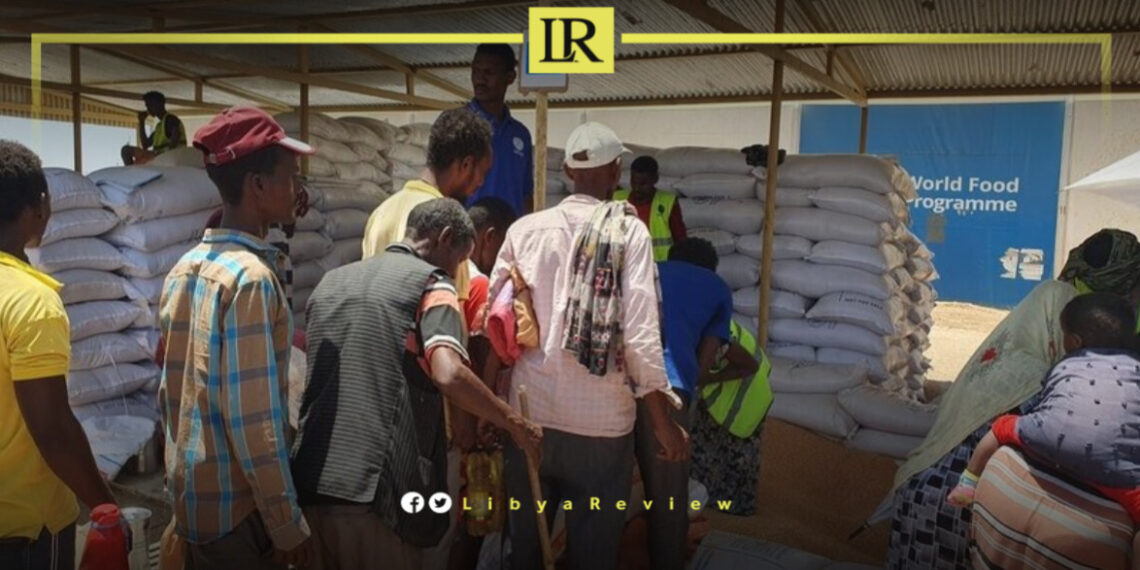The World Food Programme (WFP) has announced the successful distribution of over 235 metric tons of food to displaced Sudanese refugees in Libya during December. This vital assistance reached more than 31,000 individuals across the country, as part of ongoing efforts to address the humanitarian crisis stemming from Sudan’s instability.
According to WFP, 3,180 children and 1,396 nursing mothers benefited from nutritional support initiatives aimed at combating malnutrition. Additionally, cash transfers totaling $40,425 were distributed to 3,604 vulnerable families in displacement-hosting areas, including Al-Aziziya and Sabha. These efforts are part of a coordinated international response to support Sudanese refugees in Libya’s most affected regions.
In a parallel initiative, the World Health Organization (WHO) office in Libya reported receiving medical supplies funded by the European Commission’s Directorate-General for Humanitarian Aid and Civil Protection (ECHO). This aid addresses critical health needs among Sudanese refugees in Kufra, a southeastern municipality that has become a focal point for humanitarian assistance.
Last month, a delegation from multiple United Nations agencies, led by Stephanie Khoury, Acting Head of the United Nations Support Mission in Libya (UNSMIL), visited Kufra to evaluate the ongoing humanitarian response. During the visit, the delegation engaged with local officials to assess and enhance support efforts for Sudanese refugees, highlighting the urgency of addressing their growing needs.
The influx of Sudanese refugees into Libya underscores the complex humanitarian challenges posed by ongoing conflicts in the region. Many refugees have fled violence and instability in Sudan, seeking safety in Libyan towns like Kufra and Sabha. However, displacement has created significant pressure on local resources, requiring robust international support.
Humanitarian initiatives have focused on providing essential food supplies, nutritional assistance for children and mothers, cash transfers for vulnerable families, and access to healthcare. These efforts are crucial in mitigating the hardships faced by refugees and host communities.


